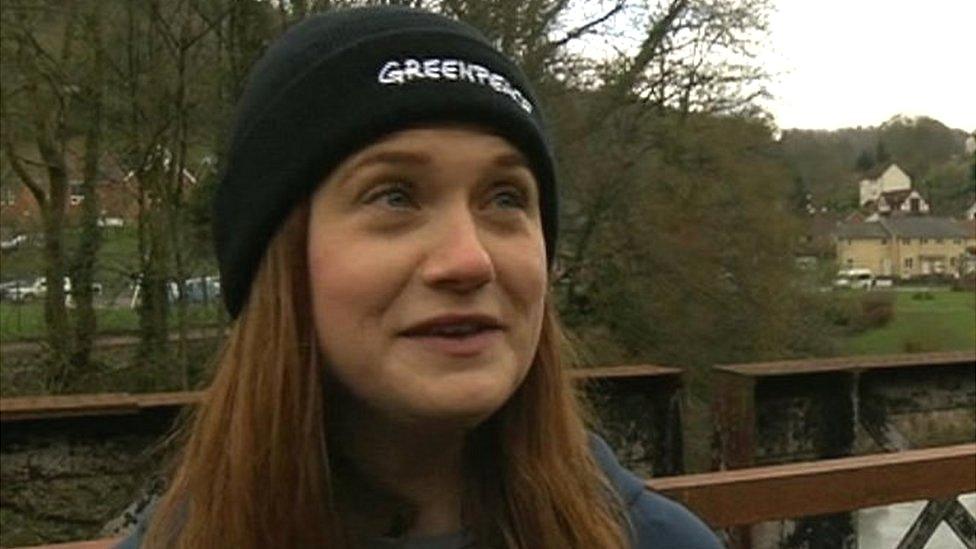Chicken producer Avara makes River Wye phosphate pledge
- Published
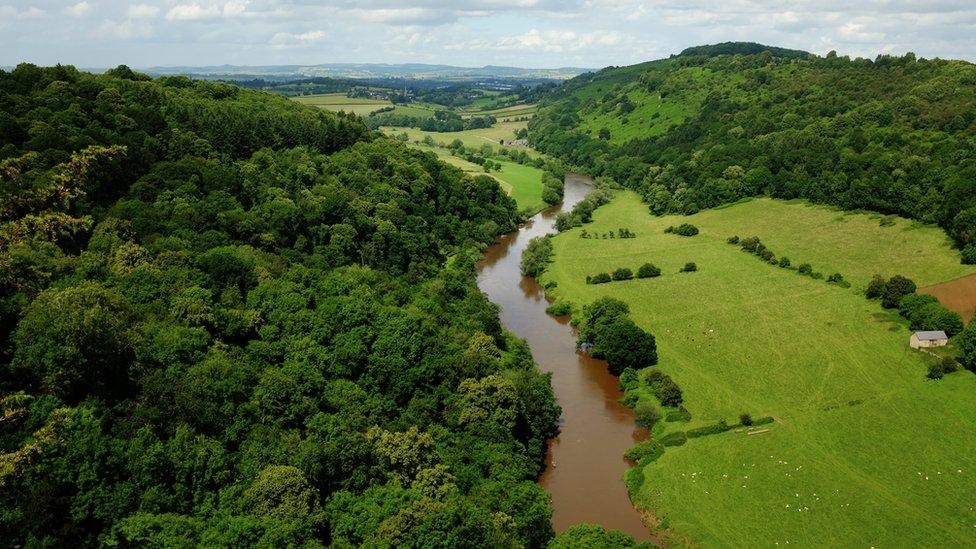
The River Wye runs through Wales, Herefordshire and Gloucestershire
Chicken producer Avara has pledged that its supply chain will not contribute to excess phosphate in the River Wye by 2025.
Two million chickens are processed at its factory in Hereford every week and it is the county's largest employer.
The firm says 160,000 tonnes of manure is produced annually by its 120 supply farms in the catchment area.
It is aiming to increase the amount of chicken muck sent out of the area and processed by digesters.
Up to 600 tonnes will be processed per week, the firm says in a new action plan,

A sculpture of the Virgin Mary was guided down the river last summer to raise awareness about pollution
A study in 2020 by Natural Resources Wales found more than half the River Wye failed to meet pollution targets and in September it admitted for the first time that the manure is causing harm to waterways - and pollution was being caused by the "spreading of manure from intensive poultry units".
Campaigners from River Action have previously called on the company and second supplier, Noble Foods, to take action to protect the river, which flows through Wales, Herefordshire and Gloucestershire.
The River Wye Preservation Trust and Angling groups have also been calling for action, as well as 75,000 people who signed a petition.
Herefordshire County Council has also set up a commission to identify ways to improve the water.
A new "phosphate credit" scheme to support the creation of new wetlands has also been approved.
In its action plan, Avara said it had successfully reduced the amount of phosphate in our feed by 27% since 2016, without compromising the nutritional value or bird welfare.
"Over the next two years, we will take further action such that our supply chain no longer contributes to excess phosphate in the River Wye," it said.
It will work with farmers to look at further developments in feed to reduce phosphate without compromising bird welfare, support alternative, sustainable homes for poultry manure and more robust nutrient, soil and manure management standards.

Follow BBC West Midlands on Facebook, external, Twitter, external and Instagram, external. Send your story ideas to: newsonline.westmidlands@bbc.co.uk , external
Related topics
- Published9 August 2022

- Published8 August 2021
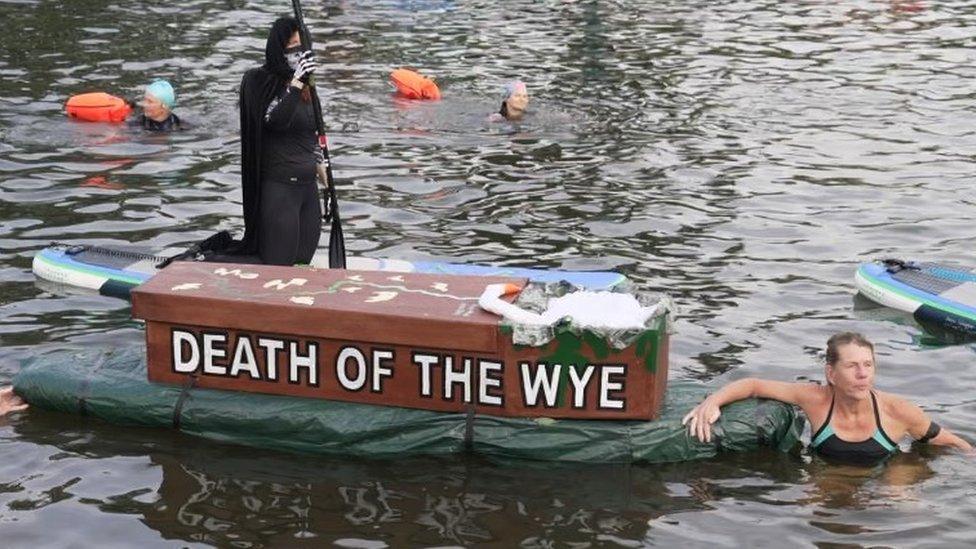
- Published17 December 2020
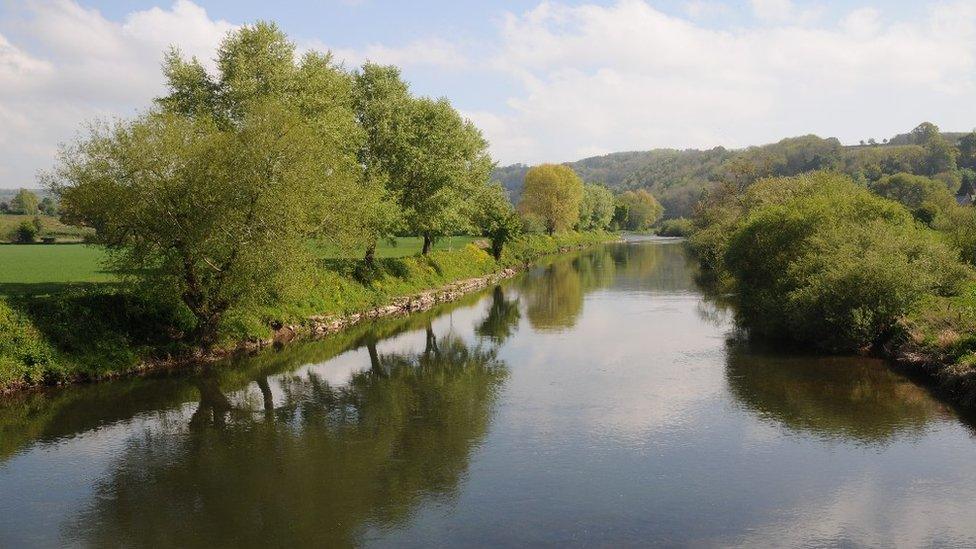
- Published17 September 2020
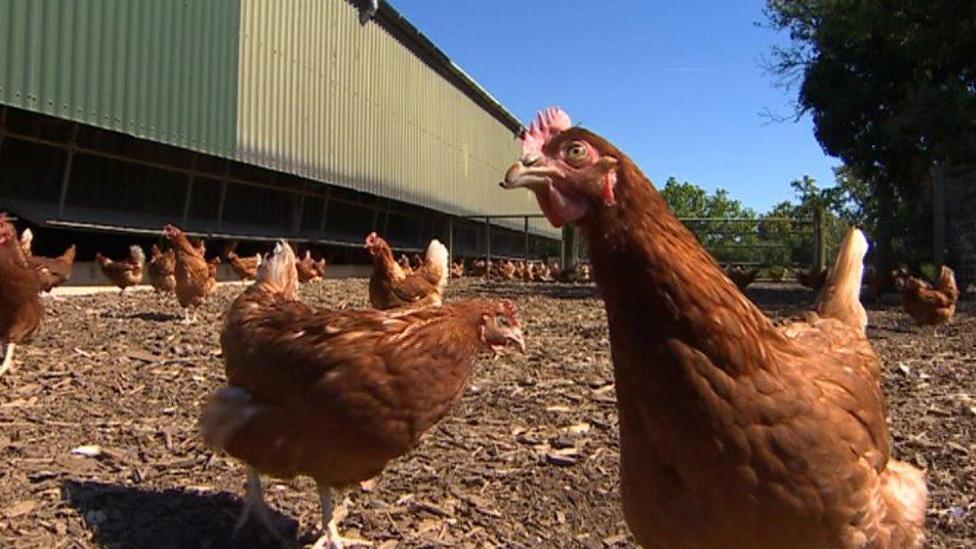
- Published2 August 2020
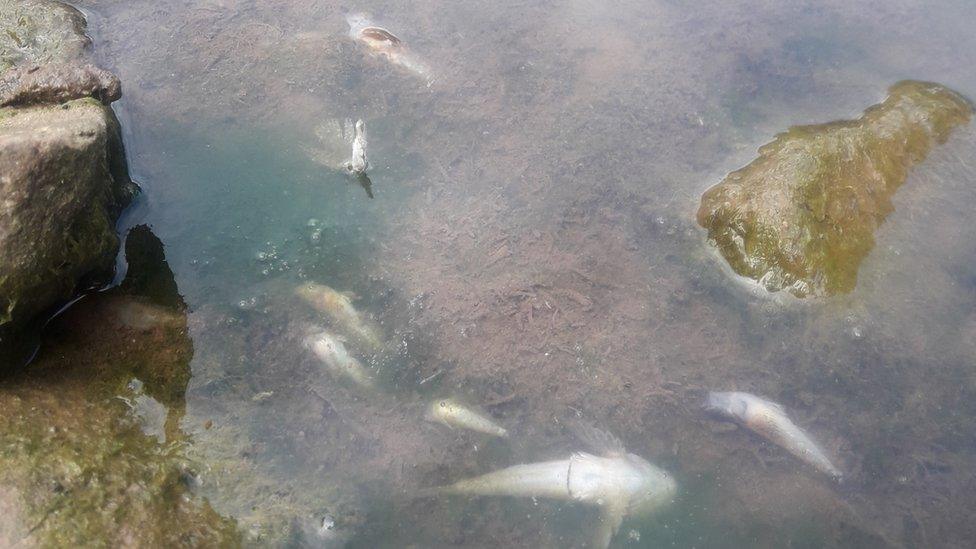
- Published6 March 2019
